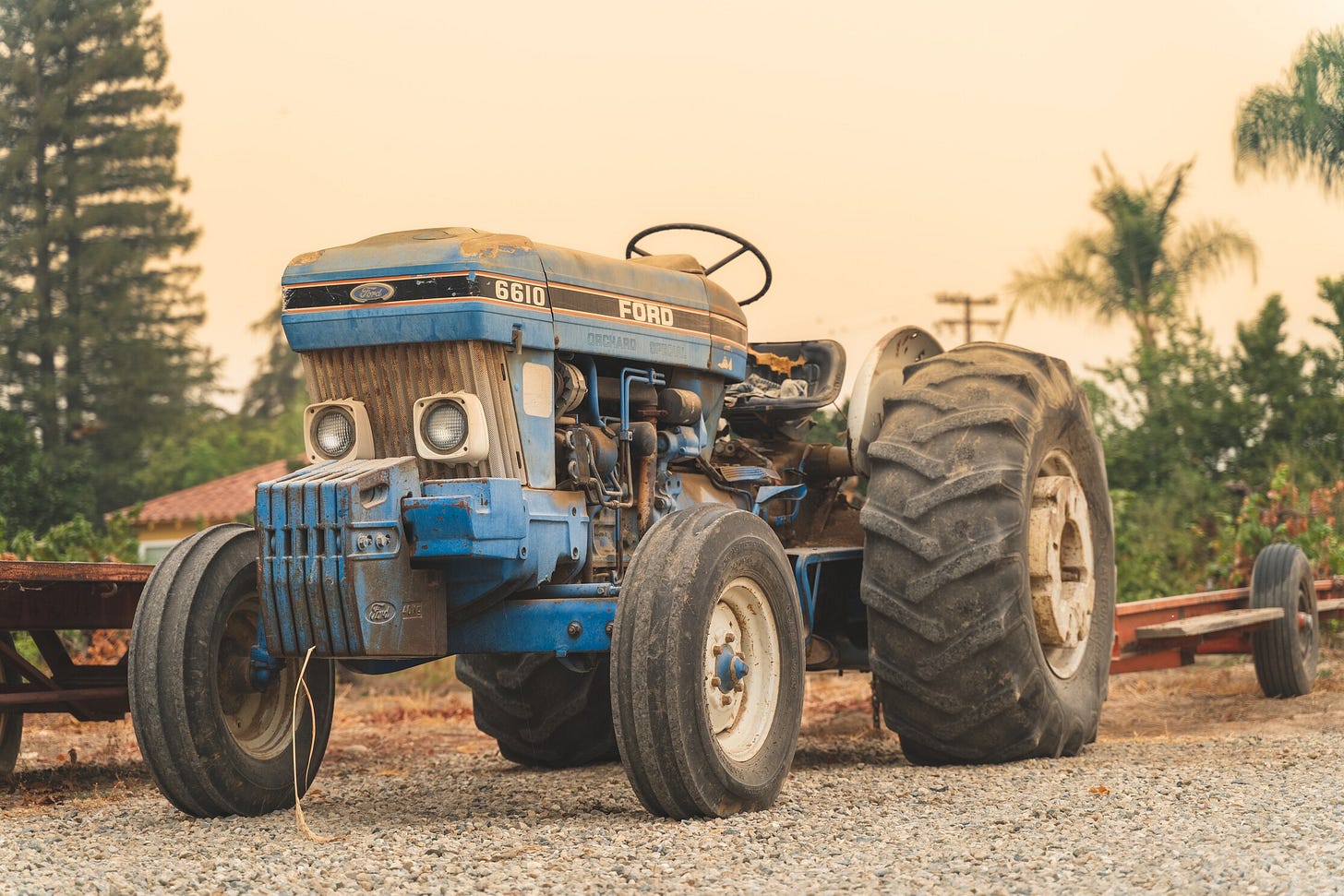No Software, No Problems?
Disclaimer: I’ve been paying the bills for the last (at least) 15 years of my life by developing software. I make a living out of software, and I want to keep on doing so, so I am more than glad software is ubiquitous.
***
Recently, an article caught my attention. The article is about how John Deere has turned tractors into computers, and the backlash this has caused from farmers who are increasingly frustrated of having lost the chance to repair their tractors. Farmers find software-intensive tractors repulsive. The manufacturers claim this is the future and it came to stay. When I read that article, I couldn’t help picturing John Deere’s CTO pitching the benefits of APIs to a blue-denim-overall-dressed audience. Stereotypical, I know, but you can feel the mismatch.
In reality, what the farmers have lost is the chance of understandingthe machines they own; in other words, knowing what to do with them when they act up. Even if provided with all the tools to diagnose and repair their high-tech farming device, the large majority would be incapable of doing anything, since this would require quite specific and multidisciplinary technical knowledge. Ignorance is not always bliss. But it is a juicy business. Make machines harder to understand and handle and your customers are captive forever. It appears that some are fonder to accept this captivity. Some others, like farmers, are harder nuts to crack.
At my wife’s grandma's farm, there is a very old tractor, I think from the 50s. My kid loves to jump on it and pretend he’s driving fast while honking and arguing with other pretend drivers, and I love just to stare at the machine and appreciate the beauty of its greasy, neat mechanics. I always find it extremely fascinating to be 100% sure there are zero transistors on board of it, let alone any computing. The old tractor still works and it is used to collect potatoes every summer in Levänen.
In the last 75 years, the transistor conquered the mechanical machine. As soon as this happened, machines stopped being the result of single-disciplined engineering, and the fun (or the nightmare, depending where you’re standing) began. Transistors quickly clustered into logic gates, logic gates clustered into arithmetic units, data paths and memories, and all that turned into microprocessors capable of executing instructions defined by an outsider (programmer). Higher-level languages came to help cope with the somewhat obscure nature of machine code, and the software industry was born. But microprocessors remained kind of harmless while isolated from the physical world. Did not last for long: we made them capable of interfacing with the outer world by means of sensors and actuators. Then, computing took over machines very rapidly. Things which were born purely mechanical went computerized: factories, cars, airplanes, ships, and tractors. Today, those cyber-physical systems produce tons of data, and that data is used to make them work more efficiently.
But there’s something odd here. Why is it that most acquiesce to the computer conquest whereas a few still fiercely resist? I’ll risk a theory here: the tractor remains more connected to a past when work was highly physical and animal-dependent and that past is still vividly passing from generation to generation of farmers. In a way, farming equipment is (still) perceived as animal replacement and augmentation, but not more than that. While the car has definitely left behind its equine past (a youngster today may not even know there is such an equine past), the tractor remains in the thought of many a sort of metal horse, an extension of their arms and muscles. And we always want to make sure we are in control of our limbs and not at the will of an algorithm. We learned to stop perceiving cars the same way; we only see them as things that simply take us from A to B, hence we are fonder of accepting an algorithm taking the wheel and using the data to make it more efficient and cheaper.
I could perceive what John Deere’s CTO was trying to say in that article, between lines: a. old farming is gone, and new farming requires a new mental model; b. physical force is not a factor anymore, get over it; c. software enables many great things and pays off, get over it; d. stop thinking about the tractor as your horse or your ox, start thinking about APIs, about autonomous driving, embrace efficiency. Monitor your farm from your smartphone while you sip a lemonade. You don't even need to ride on the thing anymore.
Sounds good, but. There’s always a but.
The problem is: the shock seems too strong. There is a phrase that goes: to sell something familiar, make it surprising; to sell something surprising, make it familiar. It seems the current farming trends are too much of a gap for what it’s been known and familiar for ages.
Here’s an uncomfortable truth for all of us doing tech: new technology can make the world a better place, but not when decoupled from its inherent societal consequences.
Max Planck, the theoretical physicist who helped lay the groundwork for quantum theory, said: “A new scientific truth does not triumph by convincing its opponents and making them see the light, but rather because its opponents eventually die, and a new generation grows up that is familiar with it.”

